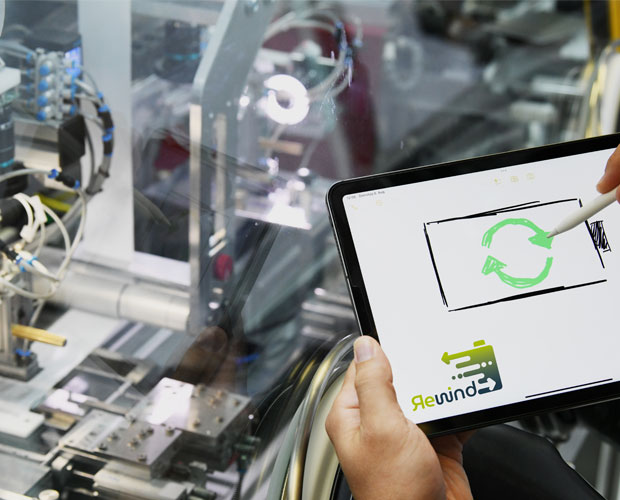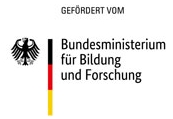REWIND: The Future of Sustainable Battery Recycling

The REWIND project has set an ambitious goal: to significantly improve battery recyclability in order to enhance resource efficiency and reduce CO2 emissions.
As part of the BattFutur program by the BMBF, REWIND aims not only to drive technological innovations but also to inspire young scientists to dive into the exciting world of battery research.
A central objective is the development of a revolutionary lithium-ion battery whose components are almost entirely and structurally preservable. By employing advanced direct recycling processes that are more resource-efficient and cost-effective than traditional methods, REWIND sets new standards. An innovative approach involves labeling battery cells to facilitate the separation of anodes and cathodes, thereby increasing recycling efficiency.
The project focuses on the promising lithium iron phosphate (LFP) technology and transfers the concept to sodium-ion batteries (SIB) to expand application possibilities. REWIND builds on a solid foundation of previous successful projects and aims to establish a competence center for direct recycling initiated by Dr. Andreas Flegler.
With the support of academic and industry mentors, REWIND has the potential to fundamentally transform the battery recycling industry, making a significant step towards a more sustainable mobile future.
The four pillars of the REWIND project:
1. Material and Component Design
The goal is to design materials and components from the ground up to be recyclable without compromising functionality.
2. Labelling/Battery Passport
The development of ID markers within the battery cells will enable quick and clear identification of materials to ensure safe processing.
3. Cell Design
Work is underway on a cell design that can be opened almost contactlessly, and the cathodes and anodes can be separated to allow direct recycling.
4. Transfer to sodium-ion batteries
The design and recycling concepts developed in the project will also be transferred to sodium-ion batteries to extend the applicability of the research results.

